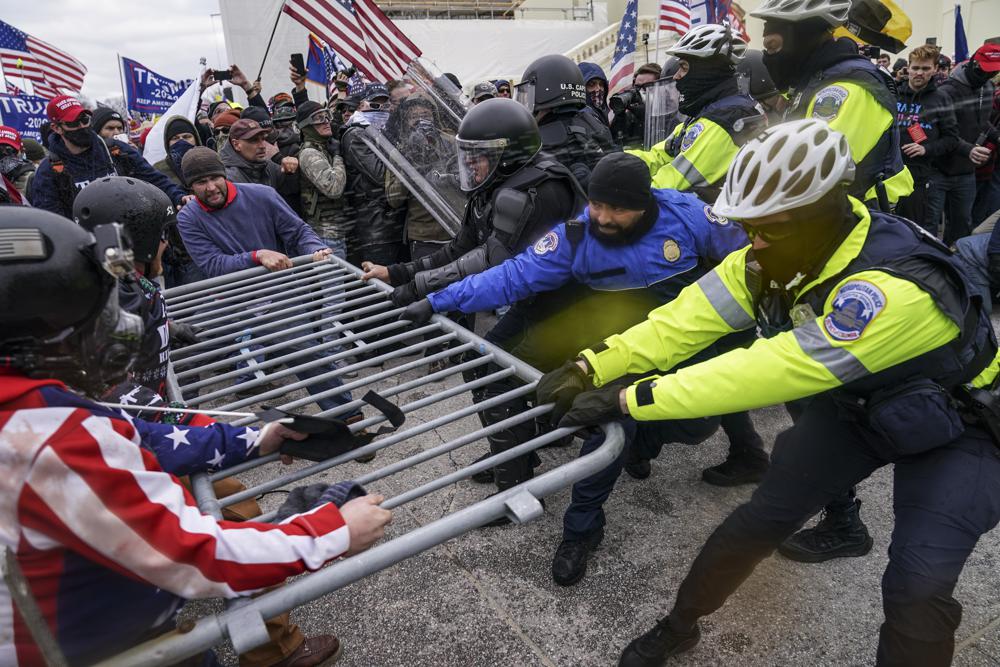The delusion of the agonies of Jan 6 is fueled by a cocktail of propaganda, conspiracy theory and disinformation — of the kind intoxicating to the masses in the darkest turns of history.
Hate is “love.” Violence is “peace.” The pro-Donald Trump attackers are patriots.
Months after the then-president’s supporters stormed the Capitol that winter day, Trump and his acolytes are taking this revisionism to a new and dangerous place — one of martyrs and warlike heroes, and of revenge. It’s a place where cries of “blue lives matter” have transformed into shouts of “f— the blue.”
The fact inversion about the siege is the latest in Trump’s contorted oeuvre of the “big lie” compendium, the most specious of which is that the election was stolen from him, when it was not.
It is rooted in the formula of potent propaganda through the ages: Say it loud, say it often, say it with the heft of political power behind you, and people will believe. Once spread by pamphlets, posters and word of mouth, now spread by swipe of finger, the result is the same: a passionate, unquestioning following.
Techniques of glorifying your side and demonizing the other with skewed information, if not outright lies, have been in play at least since World War I, when the U.S. government roused sentiment for the cause with posters depicting the German soldier as an ape-human with a willowy American maiden in his clutches. That paled next to what followed years later with Nazi Germany’s terrifying use of propaganda for the slaughter and subjugation of millions.
Whether the deception feeds warmongering or merely a defeated president’s ego, some of the methods are the same, like telling the same fabrication over and over until it sticks.
Trump perfected the art of repetition — about the “election hoax,” the “rigged election” and ”massive voter fraud,” with none of those accusations substantiated in the dozens of court cases and official post-election audits but engrained nonetheless among his supporters.
Four years ago, Trump appeared to equate white supremacists and racial justice protesters in Charlottesville, Virginia, with his comment that there were “very fine people, on both sides.”
This time, in this telling, the very fine people on Jan. 6 were on one side: his.
For the other side — the police, overwhelmed for hours and bloodied in the insurrection — Trump only has an in-your-face question that doubles as a four-word conspiracy theory: “Who killed Ashli Babbitt?”
Those words have become a viral mantra meant to elevate Babbitt as a righteous martyr in the cause of liberty.
DJ Peterson, an expert on authoritarianism and propaganda, is president of Longview Global Advisors, a Los Angeles-based consulting firm, and former director of the Eurasia Group and the RAND Corporation. He said that in an online world awash in information and a real world riven by polarization, “you pick and choose what you want to believe, including sticking your head in the sand.”
Trump, Peterson said, excels at amplifying claims that galvanize his core supporters and turn them against other Americans.
“That’s where the power of Trump is,” he said. “He’s good at picking up on these threads … that lower the level of trust and create division.”










